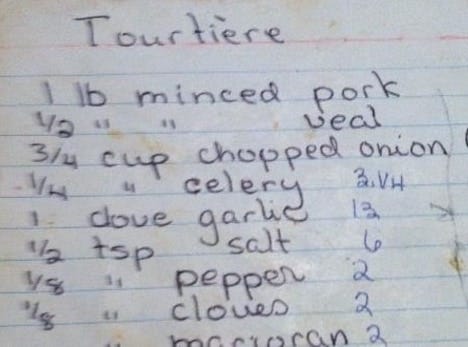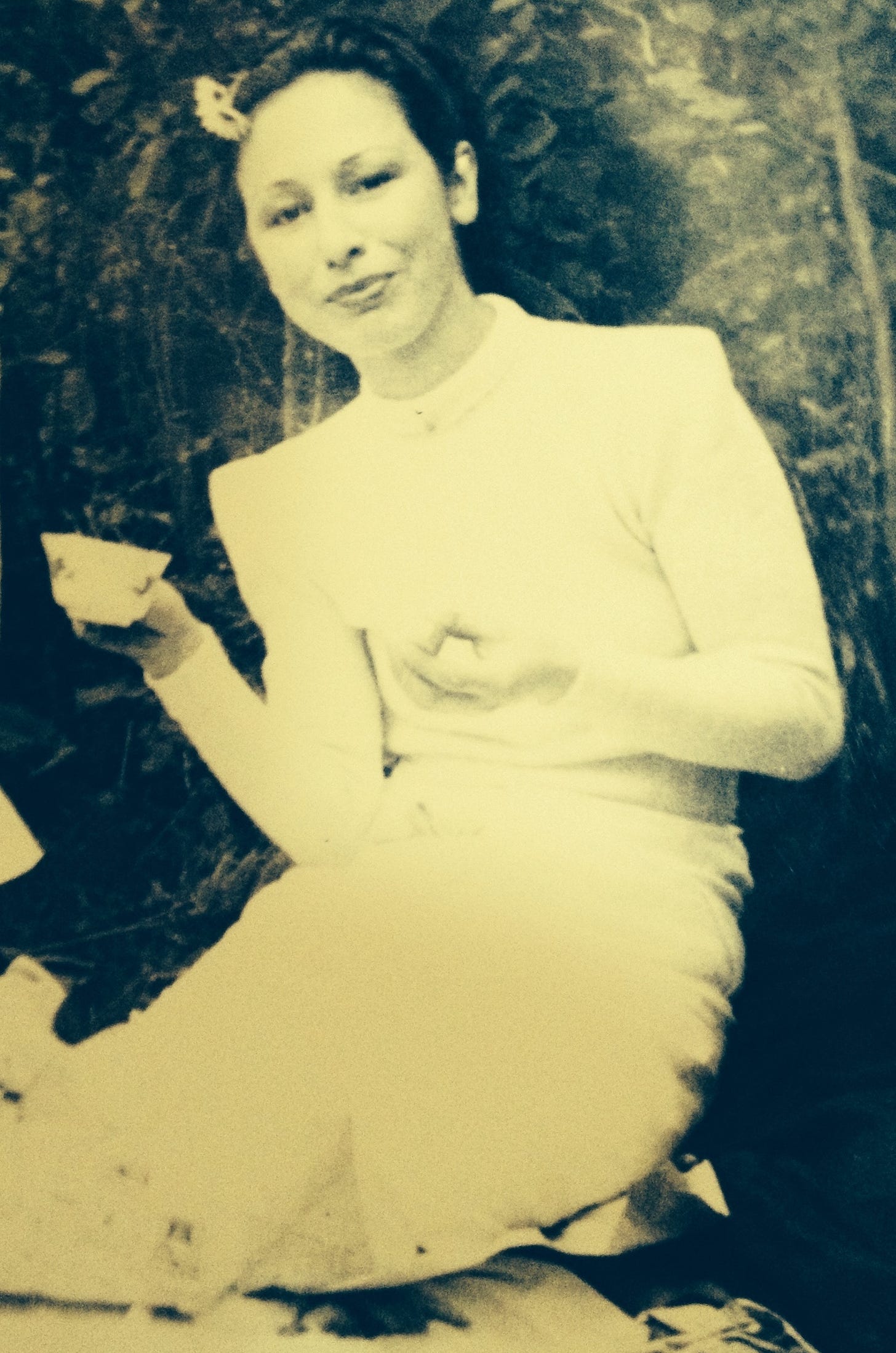In 2018, my grandmother Isabelle went viral.
It was la Résistance. The eve of the historic mass mobilizations of December 1 to protest the elimination of Ontario’s French Language Services Commissioner and the cancelation of a Franco-Ontarian university.
Isabelle was my cri du cœur.
My muse.
In an essay for The Globe and Mail, I told the story of Isabelle’s lost tongue, of her recipe for tourtière copied in English, carrying echoes of her voice through the firmament of our generations:
When it is my turn to copy the family tourtière recipe,
I will let my grandmother bear witness through generations.
I will copy her words in English
as a reminder of what is at stake
when we lose our roots.
Isabelle est toujours mon cri du cœur. My legacy. She inspires La Tourtière, a bilinguish blog, written in a language punctuated by English and French. Where the music of one tongue harmonizes with the other.
La Tourtière offers songes (thoughts) on Canada’s Francophonie, on the raw beauty of our unique parler, the politics that entangle us, and the ways in which we are shaping the future of our communities.
La Tourtière is inclusive and intersectional. Feminist. Committed to truth and reconciliation with “all my relations.” And deeply preoccupied with the work of antiracism and antidiscrimination.
I write La Tourtière as a French Canadian. I also write as a Franco-Ontarian and a citizen of Canada’s vast Francophonie. I write from N'Swakamok (Sudbury) in Northern Ontario, and as the former habitante of Francophone communities in Odàwàng (Ottawa) and Tkaronto (Toronto).
I write in the hope sown in my name by the Acadian grandmothers who survived the Grand Dérangement. As the descendant of French Canadians who rebelled against the British crown. Of great grand-uncles who – it is legend – fought for Louis Riel and the Métis in Manitoba. As the daughter of a young audacieux who participated in the creation of a Franco-Ontarian emblem. And as a ma tante to an adored sassy little Franco bébé whose first words speaks our future.
J’écris parce que je dois. I write because I must. And I hope you will join me on this path, where the past and future illuminate the present.
Bonne lecture!






